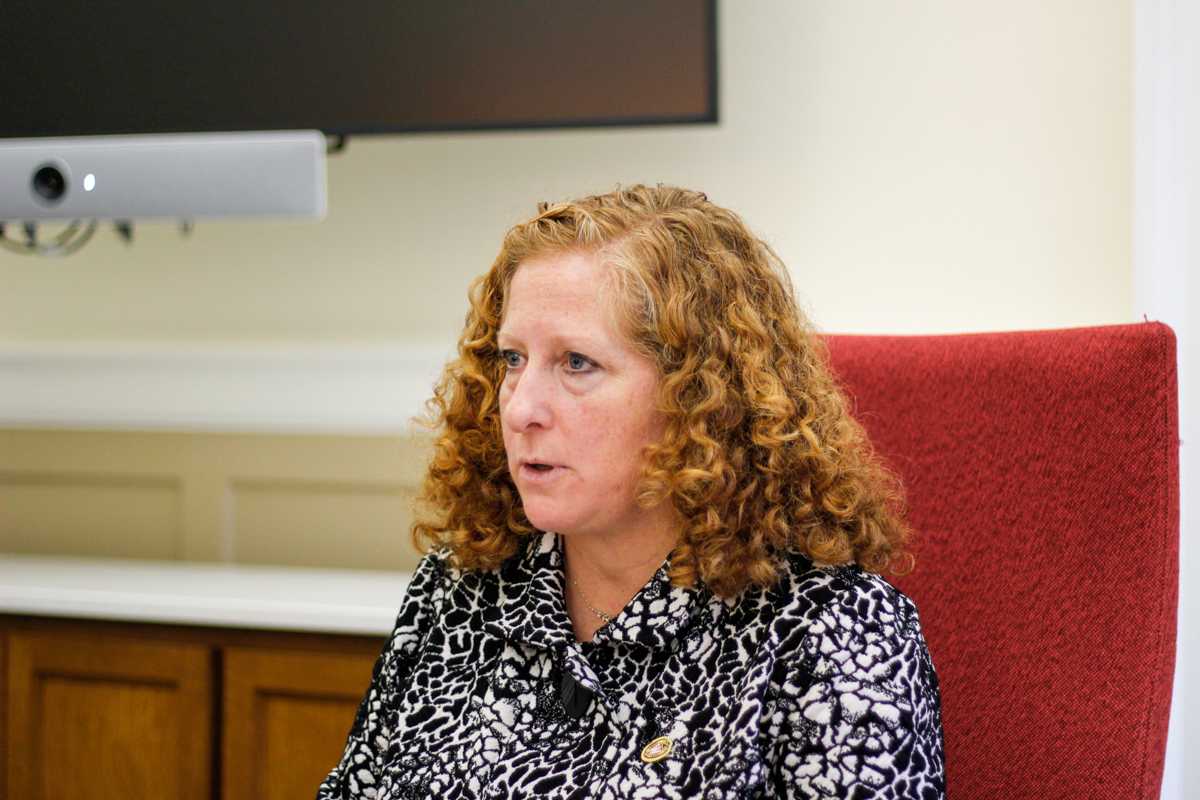University of Wisconsin–Madison Chancellor Jennifer Mnookin announced new initiatives Thursday that will innovate for the public good and address global challenges in her second address before the Universities of Wisconsin Board of Regents.
The efforts, announced in the year of the university’s 175th anniversary, center specifically on artificial intelligence, environmental sustainability and entrepreneurship. Mnookin emphasized UW’s ongoing commitment to ideals around inclusion and belonging, free speech and student success with an applied focus on advancing teaching, research and outreach missions.
“My job — our job — is to make this institution even a step stronger — by building on this excellence and also by thinking in big, bold ways about where we can take a quantum leap forward to serve this state and the world on a whole new level,” Mnookin said.
Mnookin’s address touched on the past year and looked ahead at the year to come. She pointed to the impact the ongoing Israel-Hamas war has had on UW students, challenges at the intersection of the First Amendment and Title VI and navigating state politics in Wisconsin.
Looking at the year ahead, Mnookin drew attention to several initiatives and areas of emphasis.
Over the next three to five years, UW–Madison expects to hire between 120 and 150 new faculty through the Wisconsin Research, Innovation and Scholarly Excellence Initiative, a program designed to address significant and complex challenges of importance.
“We’re going to look at the grand challenges facing our state and the world and grow the faculty in a targeted way that builds on our existing strengths, in places where, with strategy and investment, we can accelerate discovery and world-changing research and education, innovate for the public good … and be absolutely best in class,” Mnookin said.
Under the Wisconsin RISE Initiative, the first area of focus will be artificial intelligence — an area faculty, staff and students on campus have already begun exploring. Over the next three to five years, RISE will add up to 50 new faculty positions at all levels across campus, in complementation to regular hiring in AI and AI-adjacent areas.
Mnookin also announced a new cross-campus initiative focused on environmental sustainability. The initiative will revolve around five goals, including the launch of an interdisciplinary research hub.
“This is a space where we’ve been pioneers in many ways — from ecology and wildlife biology to land restoration and the use of satellite technology to detect changes in the environment,” Mnookin said. “We have an impressive list of accomplishments — but these alone don’t qualify us to be a world leader in sustainability.
Mnookin stressed that through deliberate engagement with environmental work, UW–Madison can become a leader in this field. She also emphasized the institution’s ongoing efforts to generate entrepreneurial excellence on campus.
UW–Madison will establish a new working group with on and off campus business leaders and entrepreneurs to assess current practices and make recommendations. The group is expected to deliver a report by June.



